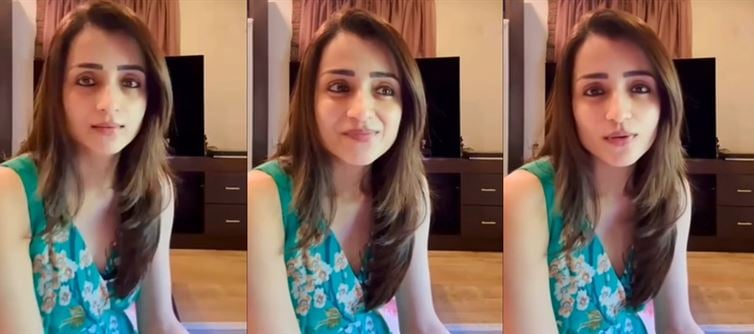
After the Karur stampede massacre that claimed 41 lives, trisha, one of tamil cinema’s top stars, has finally broken her silence. But instead of condemning the man at the center—Vijay—her comments tread a thin line between advice and victim-blaming.
She urged people to “have common sense,” asking why individuals gather in huge crowds and bring children to mass events. She also recommended that people should have political knowledge.
While cautioning citizens is valid, her indirect support for Vijay has left many questioning: Is she subtly defending a superstar while shifting responsibility onto the victims?
1. The Fine Line Between Advice and Blame
Trisha’s statements suggest that victims are partly responsible for the tragedy. While awareness is important, shifting focus from the orchestrator of the event to ordinary attendees is deeply problematic.
2. Subtle Support for Vijay
By not mentioning Vijay or criticizing the event management, her message indirectly defends him. This gives fans a way to rationalize his delay and PR antics as “unavoidable circumstances.”
3. Children at Risk, But Not the Star?
Trisha questioned why parents brought children to the gathering, but ignored why a mass-obsessed star allowed 7 hours of chaos to build. Real responsibility lies with those who orchestrated the event, not the attendees.
4. Political Knowledge vs Human Lives
She emphasized political awareness for attendees, but failed to acknowledge the political influence and celebrity power that endangered lives in the first place.
5. The Victim-Blaming Trap
Messages like “use common sense” are subtle yet dangerous. They shift outrage away from negligence and towards ordinary people, watering down the demand for accountability from powerful figures.
6. Fans love It, Critics Call Out
Her statement has been warmly received by Vijay’s fanbase, who now use it as justification for blind loyalty. Critics argue it’s a missed opportunity to condemn the real cause of the tragedy.
7. Moral Responsibility Ignored
As a public figure, trisha could have amplified accountability. Instead, she nudges the narrative towards cautioning the victims, letting the orchestrator of the disaster remain untouchable.
8. The Pattern of Silence and Subtle Support
This fits a larger trend where celebrities tiptoe around criticism of stars involved in public disasters, indirectly helping them escape scrutiny while appearing neutral.
Bottom Line
Trisha’s comments on the Karur massacre are a subtle dance between advice and silent defense. While urging caution is not wrong, the omission of direct accountability for Vijay and the event’s mismanagement risks normalizing victim-blaming.
In a tragedy where 41 lives were lost, words matter. And her carefully phrased statements have sparked debate over who really bears responsibility: the victims or the star orchestrating the deadly spectacle.




 click and follow Indiaherald WhatsApp channel
click and follow Indiaherald WhatsApp channel